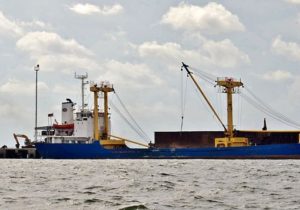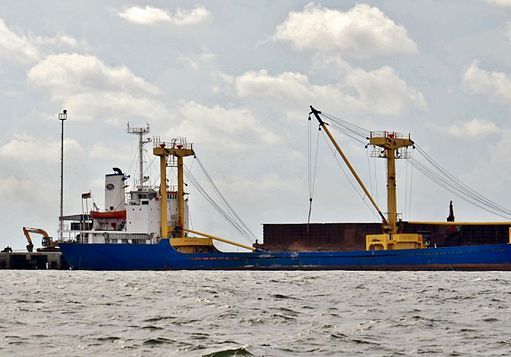 The Indonesian government will issue soon a special economic policy to boost the logistics sector by encouraging the building of more distribution hubs to reduce steep transport costs in the country.
The Indonesian government will issue soon a special economic policy to boost the logistics sector by encouraging the building of more distribution hubs to reduce steep transport costs in the country.
The proposed policy is being prompted by the establishment of new bonded logistics centers (PLBs) in the country, which is among the most notable outcomes from the issuance of several economic policy packages by the government, according to Coordinating Minister for Economic Affairs Darmin Nasution.
Since September 2015 there have been 13 economic policy packages released aiming to improve the country’s investment climate, business competitiveness, and ease of doing business, according to a report by Antara News.
The special economic policy will call for the speedy implementation of the blueprint for the logistics industry, Darmin said.
The government wants more PLB units to be established not only in Java and Sumatra but all over the country, especially in the eastern parts, as they have helped to cut the nation’s logistics costs, among the highest in the world, he said.
On October 19, the government launched 17 new bonded warehouses built by private companies, bringing the total in the country to 28.
“PLB units have begun to spread in the regions and it is only a matter of time before other regions have units. It would help boost export and imports. There are (many) already investing there and they are not small investors though not very big either, but enough to surprise me,” he said.
The PLBs are used in various sectors, including oil and gas, mining, maintenance, repair and overhaul, automotive, and pharmaceutical industries.
A PLB is a multifunctional logistics warehouse for storing imported or local goods that comes with a tax facility. The tax facility comes in the form of postponement of payment of import duty and exemption of value added tax and luxury sales tax, as well as provides flexibility in other operations.
The logistics policy package is expected to be issued this year, and will cover the revision of the transportation ministry’s non-tax state revenue system, which is considered to be a burden on the national transportation sector.
“We actually have set a target to unify regulations on logistics, bureaucracy and procedures in 2015, but considering the increasingly tough competition in ASEAN, we have to make a breakthrough to accelerate our blueprint,” Deputy for Commercial and Industrial Affairs of the Coordinating Ministry of Economic Affairs Edy Putra Irawadi said.
Indonesia is seen to be weak in multimodal transportation and slow in carrying out infrastructure projects, with logistics service players merely serving as agents.
“Customs and excise (department) could not perform well because of the lack of an electronic system. Of the 137 ports in Indonesia, only 21 have a new electronic system. We could not build electronic systems for all the ports in Indonesia because of an inadequate telecommunications infrastructure,” Edy said.
Meanwhile, Finance Minister Sri Mulyani Indrawati expressed hope that the presence of the PLBs would make Indonesia a logistics hub in the Asia-Pacific region.
Sri Mulyani explained that by becoming a regional logistics center, Indonesia will no longer need to rely on Singapore and Malaysia to connect with the rest of the region.
“With the PLB, there is no accumulation of goods at the port, which has been the main reason for high economic costs,” she said.
Photo: Bahnfrend





